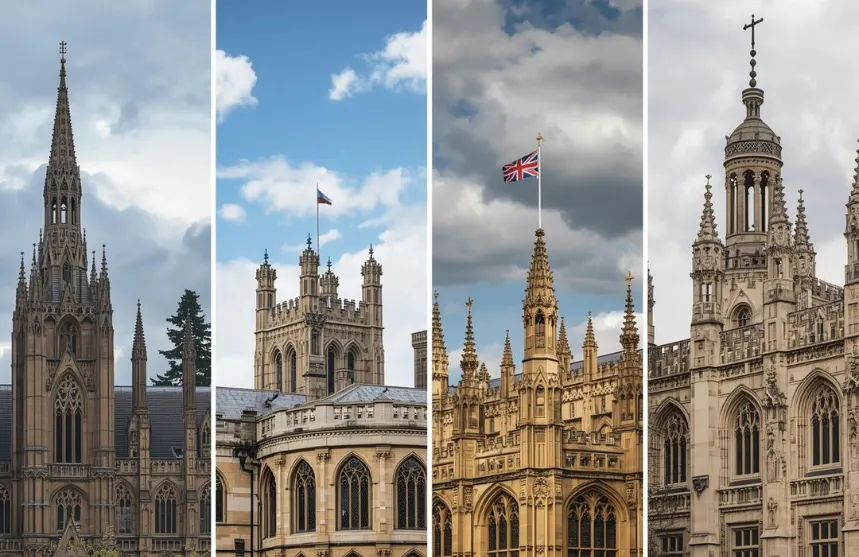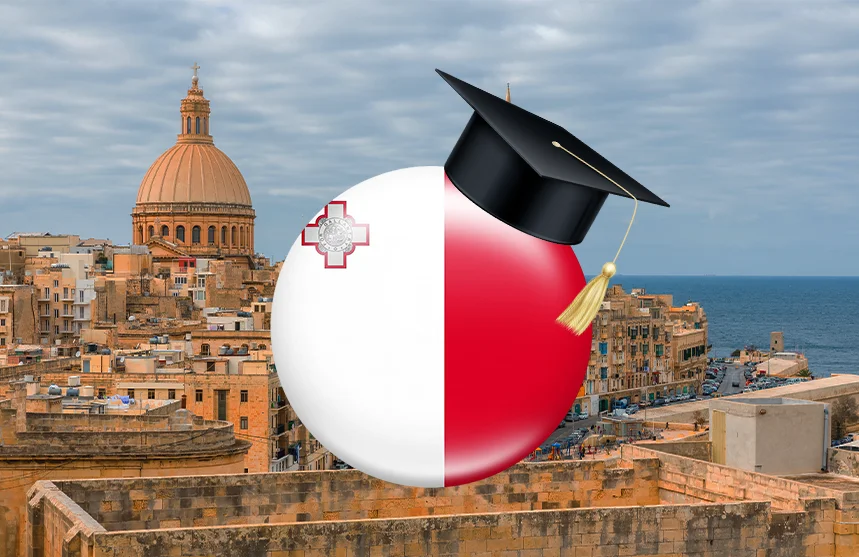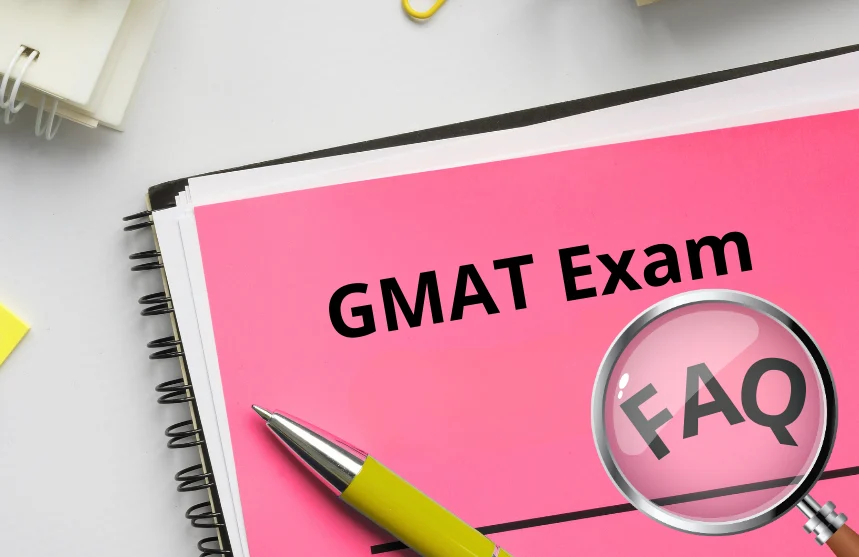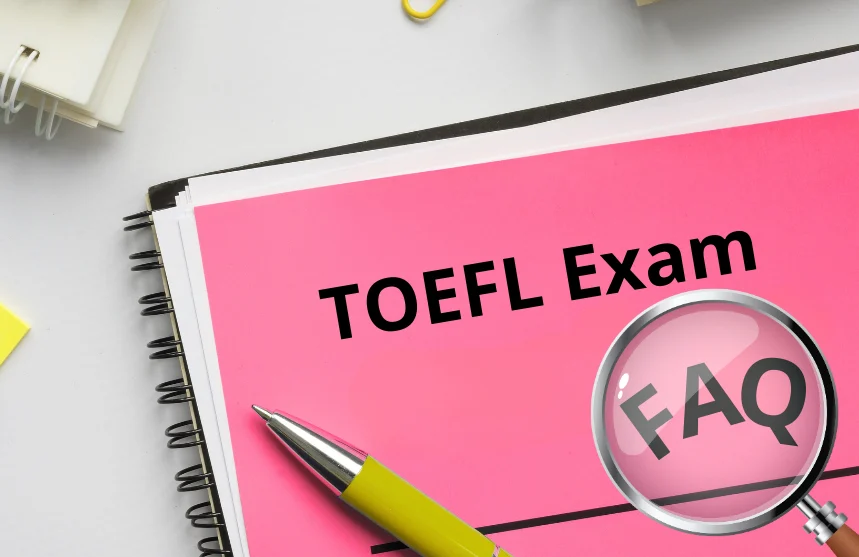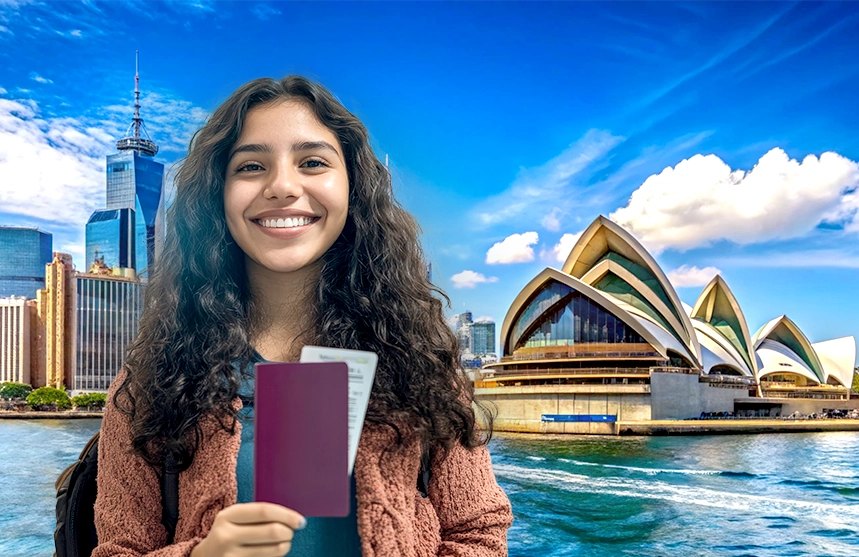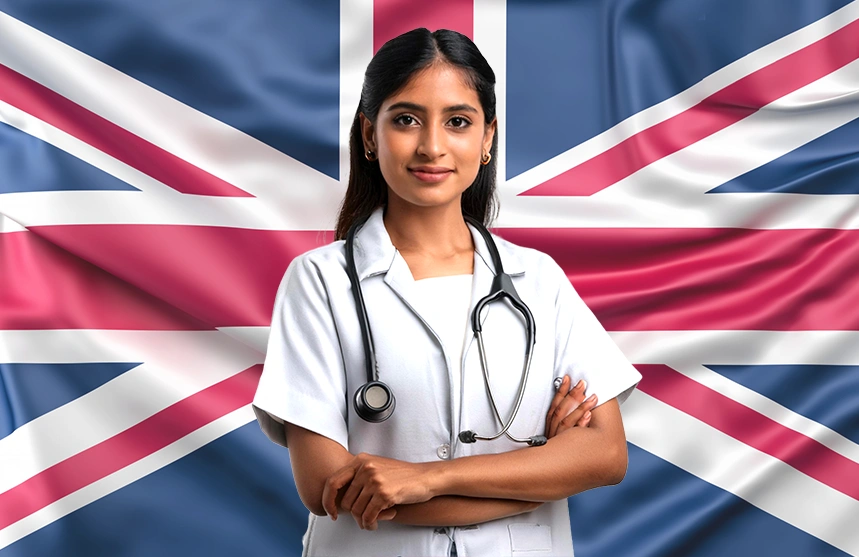Hotel Management Scope Overseas: Courses, Skills, Internships & Global Careers Explained
MBBS in Georgia: Study Medicine in Europe at Top Universities
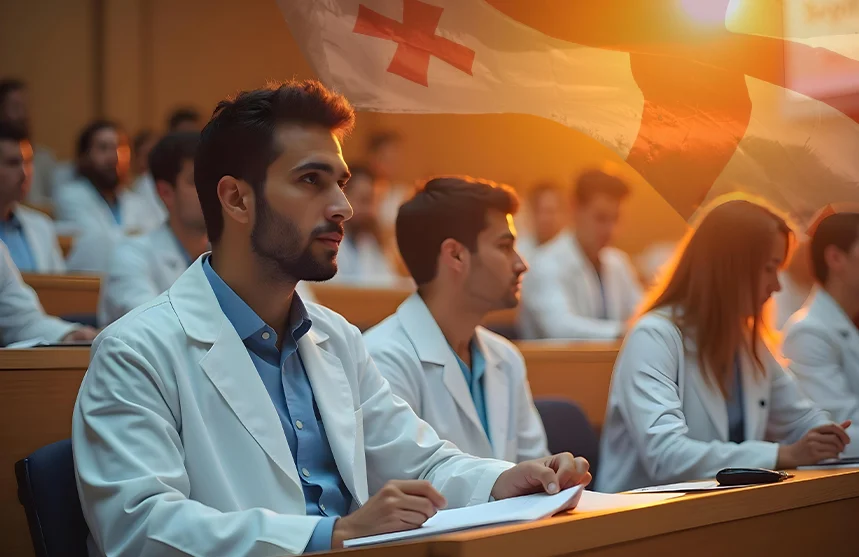
MBBS in Georgia is one of the most demanded programmes in the last few years, especially by students from India, Nepal, Sri Lanka, and even Africa. Georgia has a globally recognised curriculum at an affordable cost, and with its top-ranked medical universities, it has become one of the fastest-growing Popular Abroad Destination for those seeking quality medical education.
Whether you are just beginning to research the topic of studying MBBS in Georgia or are about to make your final decision, this is a complete guide to understanding everything about MBBS in Georgia. Factors such as eligibility, admission process, top universities, costs, and career prospects are all covered.
What are the Reasons to Study MBBS in Georgia?
A combination of European standards of medical education and low tuition fees makes Georgia a very appealing choice. The country is marked by a high literacy rate, world-class infrastructure, safety, and a student-friendly environment. The overwhelming majority of medical universities in Georgia are recognised by WHO, NMC (previously MCI), FAIMER, and ECFMG, which means your degree is accepted in many countries.
In Georgia, it is easy to find direct admission into MBBS without the entrance tests and sky-high tuition that many Western countries require. However, competition exists, as students must qualify for NEET to Study MBBS in Georgia, in line with NMC’s eligibility requirements.
Best Reasons to Pursue MBBS in Georgia
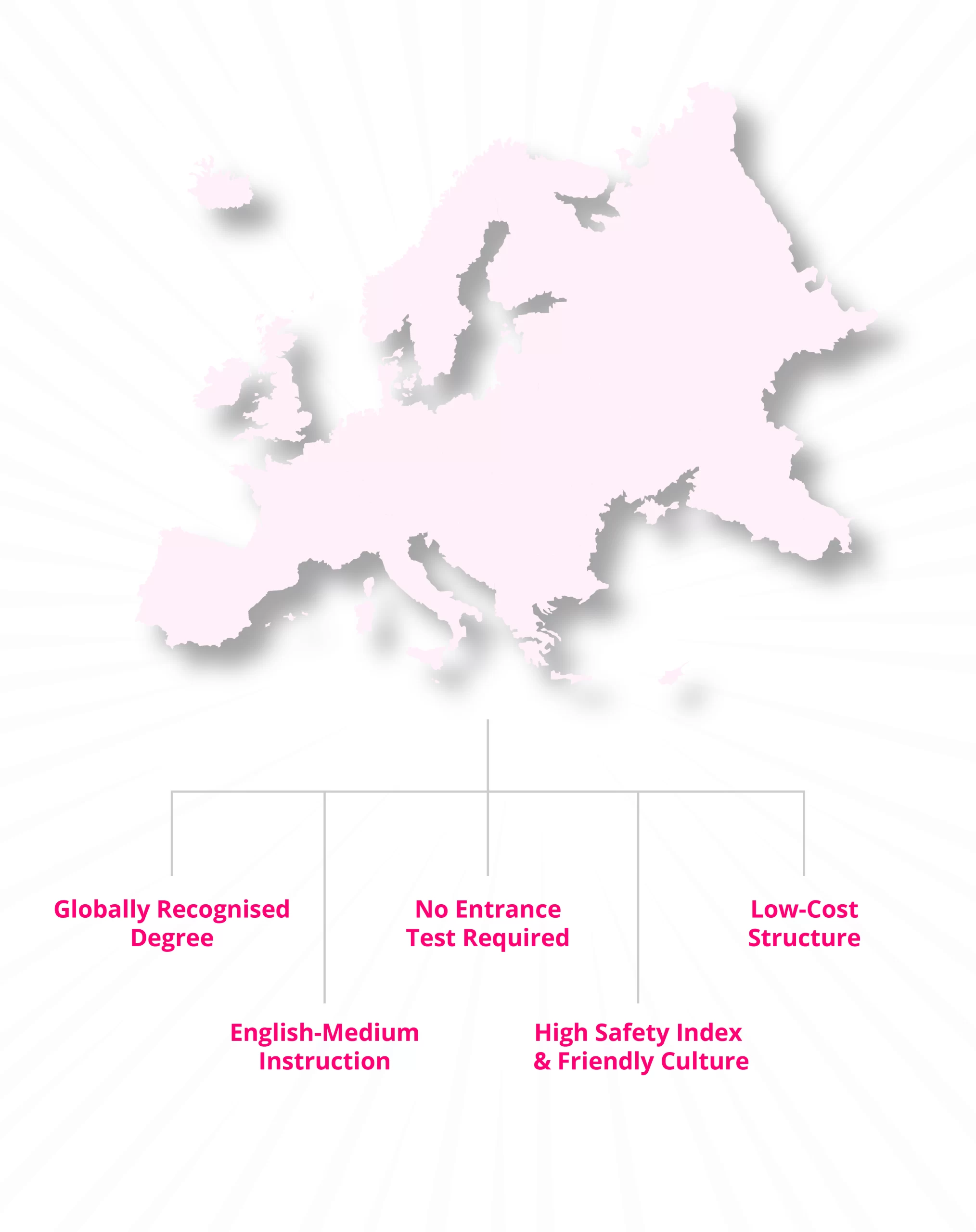
1. Globally Recognised Degree
Medical universities in Georgia are internationally recognised and offer globally accepted MBBS degrees. Graduates can take licensing exams such as the USMLE (United States), PLAB (United Kingdom), and FMGE (India), and can pursue postgraduate studies or medical practice worldwide.
2. No Entrance Test Required
Georgia follows a no-entrance test policy, unlike Indian private medical colleges that require NEET rank-based admissions. All you need to do is clear NEET and meet the academic eligibility to apply.
3. Low-Cost Structure
Georgia provides high-quality education at affordable rates, with tuition fees ranging from $4,000 to $7,000 annually, much lower than those of Western universities or Indian private colleges. Living expenses are also economical, averaging $250–$400 per month.
4. English-Medium Instruction
MBBS courses in Georgia are taught entirely in English, eliminating language barriers for international students.
5. High Safety Index and Friendly Culture
Georgia is considered a safe country with friendly, welcoming people and ranks highly on global safety indexes. International students enjoy a good standard of living, multicultural exposure, and excellent facilities.
Qualifications to Study MBBS in Georgia
To study MBBS in Georgia, students must meet the following eligibility criteria:
- In 12th grade, pass Physics, Chemistry, and Biology with a minimum of 50% marks (General category)
- At least 40% for SC/ST/OBC categories
- Indian students must qualify NEET
- Age must be 17 years or older by 31st December of the admission year
- Valid passport and health insurance
Some universities may conduct a brief online interview or entrance test to assess communication skills and academic readiness.
How to Get Admission to MBBS in Georgia?
The admission process for MBBS in Georgia is simple and student-friendly:
- Pick Your University: Research accredited medical universities in Georgia.
- Online Application: Submit your academic documents, passport copy, and NEET scorecard.
- Admission Letter: Once selected, you will receive a conditional offer or admission letter.
- Apply for Visa: Begin the visa process for Georgia with assistance from your university or study abroad consultant.
- Pay Fees and Book Travel: Once your visa is approved, pay the tuition fees and book your travel.
Many students use trusted study abroad platforms like MetaApply IE for smooth documentation, visa assistance, and accommodation support.
Best MBBS Universities in Georgia
Here are some of the best universities offering MBBS in Georgia, known for their academic excellence and global recognition:
1. Alte University
Located in Tbilisi, Alte University has grown rapidly thanks to its innovative curriculum, modern teaching strategies, and international collaborations. It offers a 6-year MD (equivalent to MBBS) programme in English, recognised by the NMC, WHO, and ECFMG. Alte places strong emphasis on research, early clinical exposure, and student-focused learning, making it an ideal choice for aspiring global doctors.
2. David Tvildiani Medical University (DTMU)
A pioneer of English-medium medical education in Georgia, DTMU is one of the most respected medical institutions in the country. Known for its strong academic foundation and international faculty, DTMU has a solid track record of graduates pursuing postgraduate studies in the US and Europe. It is recognised by both NMC and WHO and boasts excellent FMGE and USMLE results.
3. International Black Sea University (IBSU)
Although IBSU is best known for its engineering, business, and social science programmes, it also offers health-related undergraduate and postgraduate degrees. IBSU’s interdisciplinary teaching approach, diverse faculty, and focus on innovation make it a great choice for holistic academic growth. Many medical aspirants pursue pre-med or foundation programmes at IBSU before transferring to a medical university.
4. Grigol Robakidze University
This private university in Tbilisi is well-regarded for its focus on health sciences, small class sizes, and high student satisfaction. It offers a 6-year MD programme in English, modern simulation labs, hospital rotations, and internationally trained faculty. Its curriculum is aligned with European and American standards, ideal for students planning to appear for international licensing exams.
Life as a Medical Student in Georgia
Life in Georgia offers the perfect blend of academic focus and cultural experience. From scenic beauty to rich heritage and modern city life, students enjoy a dynamic lifestyle alongside rigorous academics.
Most universities have Indian student communities, mess facilities, and student support services. Accommodation is affordable, and students can explore opportunities for internships, clinical rotations, and research throughout their course.
Internship Training and Clinical Practice
The final year of the MBBS programme includes a mandatory internship, which can be completed in Georgia or in the student’s home country. Clinical rotations are held in fully-equipped hospitals, offering exposure to various healthcare settings.
Some universities also offer opportunities to complete part of the internship in countries like Germany or the UK through exchange programs and academic partnerships.
FMGE and Career Prospects After MBBS in Georgia
Indian students must pass the Foreign Medical Graduate Examination (FMGE) to practice in India. Georgian medical universities provide dedicated FMGE coaching, helping students improve their success rate.
Career options include:
- Appearing for USMLE and practicing in the US
- Taking the PLAB and working in the UK
- Pursuing postgraduation in Germany, Canada, or Australia
- Enrolling in MD/MS courses in India post-FMGE
- Exploring careers in global research, teaching, or public health
Conclusion
MBBS in Georgia is a life-changing opportunity for students who dream of becoming doctors but face high competition or financial barriers in their home country. With a globally recognised curriculum, modern teaching methods, and strong clinical exposure, Georgia has earned a reputation for offering affordable, high-quality medical education.
MetaApply IE offers end-to-end support, from visa assistance to accommodation. So, you can focus on your education while they handle the rest. If you’re ready to take the next step in your medical journey, Georgia might just be the destination you’re looking for.
Frequently Asked Questions
Yes, provided the university is recognised by the NMC and you pass the FMGE, your degree is valid in India.
No, the MBBS program is entirely taught in English. However, learning basic Georgian can help during clinical training.
It varies by university and student preparation. Top universities often offer FMGE coaching, resulting in higher success rates.




